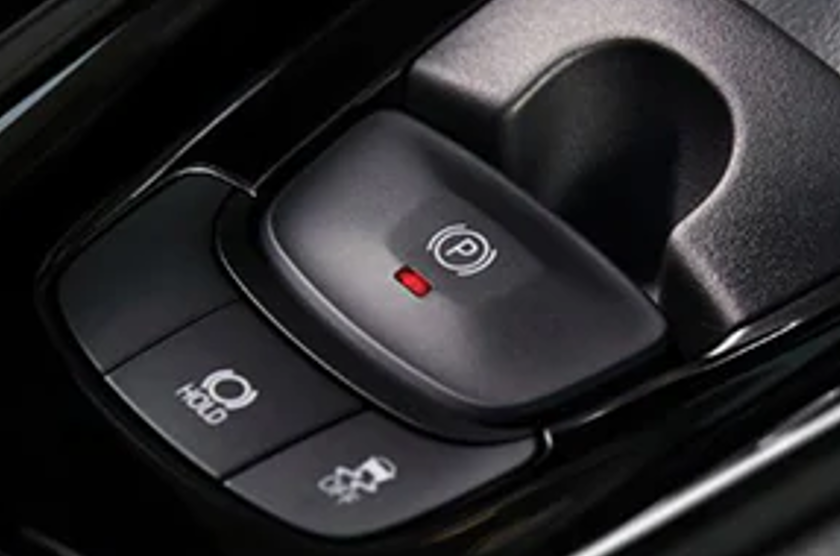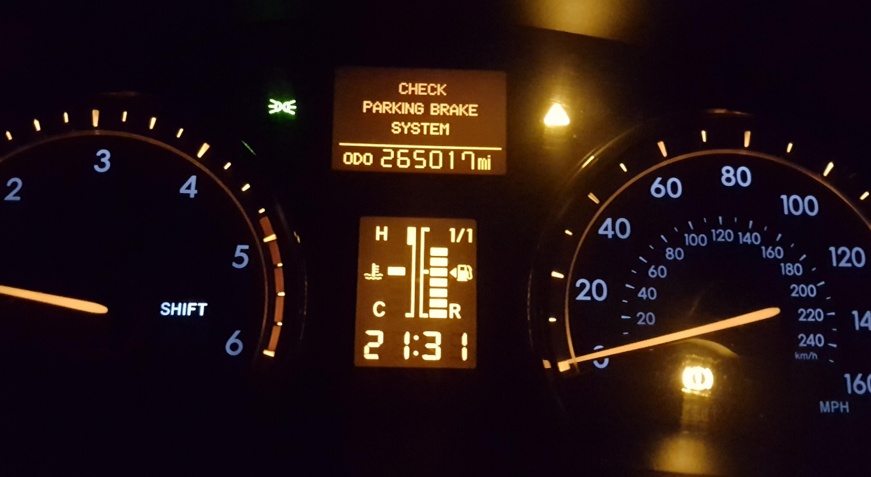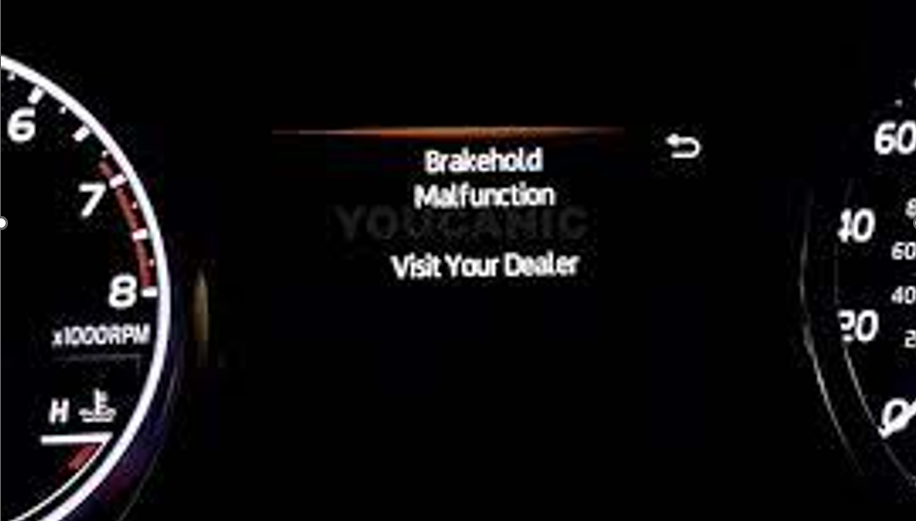An electronic parking brake is one of the best inventions in modern automobiles. It helps make driving a much easier experience. As such, when it starts to malfunction, you are left at a disadvantage, and your only option is to immediately fix the issue.
Toyota Electronic Parking Brake Problems
In most cases, your electronic parking brake problem is either a lack of engagement or not releasing when it should. However, the issues can result from many reasons, such as a weak battery, stuck parking button, damaged motor, faulty brake calipers, and many more.
Parking Brake is not Engaging.
This is the most common electric parking brake problem in this instance. The brake fails to engage automatically or when you press the button. Alternatively, the brake engages, but it doesn’t hold the vehicle, or it doesn’t hold the vehicle well enough.
The causes of this problem could be a bad brake caliper motor, a blown fuse, and a bad battery. Fortunately, troubleshooting the exact cause at home is pretty easy. Or you can visit a mechanic to get a proper diagnosis.
Parking Brake is not Releasing.
This problem prevents you from driving your car as the electronic parking brake is locked. If you attempt to drive when the parking brake has not disengaged, you will destroy your vehicle’s brake caliper, rotors, brake pads, and tires.
In most cases, this problem is caused by a malfunction in the control module. To resolve this issue, you can try holding the button down for a few seconds, releasing the brake pedal, and pressing the gas pedal. Refer to your user manual to see if the procedure differs. You can also disconnect the negative battery cable for a few minutes to reset the control module.
Note: If this does not work, resolve the other causes discussed below.
Causes of the Parking Brake Problems
The two issues above could be as a result of the causes listed below;
- Faulty brake pedal switch or gear stick selector switch
- Miscommunication between the EPB module and the switch(s)
- Faulty battery
- Blown fuse
- Faulty EPB module or actuator
- Faulty or stuck parking brake motor
- Damaged wiring
Dirty Parking Brake Button

If the button doesn’t light up and your parking brake doesn’t engage when you press it, it may be stuck or damaged. Accumulation of dust or crumbs could cause it to stick.
Solution:
- Clean the button to see if it will start working.
- If this does not work, move to the next troubleshooting step.
Bad Parking Brake Button
Usually, the parking brake engages when you shut down your car and disengages when you put your car in transmission and press the gas pedal. If your vehicles do this but do not engage or disengage the parking brake when you press the parking brake button, it is damaged.
Solution:
- Listen for a buzzing sound when you shut off the engine, as this indicates that the parking brake motor has engaged the parking brake. You can have someone listen to the actual parking brake located on the rear tires.
- If this happens but you can overide the parking brake engagement with the button in the car, chances are the button or some wiring is faulty.
- If you can’t hear any buzzing sound at the rear tires, chances are something else in the system is faulty and not just the parking brake button.
Old or Faulty Battery
The parking brake is powered by an electric motor that uses power from the car battery. If the battery is drained or old, the voltage to the motor won’t be high enough or consistent enough to power the parking brake.
This may also happen if the charging system is not faulty. As a result, the control module will turn off the electric motor to prevent damage. When this happens, you will get error codes.

Solution:
- Test the battery and the alternator using a multimeter.
- Or visit a mechanic and have them test it for you.
- If the battery is bad, replace it.
- If the charging system is bad, replace it.
Damaged Electric Motor
The electric parking brake uses an electric motor known as a servo motor to engage or disengage the parking brake mechanism. The motor won’t engage or disengage the electronic parking brake when you press the button if it is damaged.
Solution:
Since electric motors require calibration after installation, it is recommended that you visit an authorized Toyota dealership or auto shop to get them checked and replaced.
You may also not have the right tools to test and replace your motor. There is also a risk of you damaging the brake wiring while attempting to replace the motor yourself.
Bad Brake Calliper Piston
Some cars have a separate hand brake caliper; others have an integrated system. If the piston is bad, your parking brake will not engage or disengage as it should. You will also get corresponding fault codes.
Solution:
- Scan the error codes with an OBD2 Bluetooth reader to determine if the pistons are the cause of the parking brake malfunction.
- Or you can visit an Auto shop for assistance.
- If the piston is the issue, replace it or have a mechanic replace it.
Bad Control Module
The electric parking brake uses an electronic control module to communicate with other modules in the car. Some cars have a separate electronic module or an integrated module. If the module the parking brake is operating through fails or glitches, the parking brake will not engage or disengage.
Solution:
You must visit an auto shop for this diagnosis and repair or replacement. This is because self-diagnosing the issue is pretty difficult.
Faulty Wires
Loose, frayed, or corroded wires will prevent the motor or other components of the parking brake from working properly. A sure sign is when the connection is iffy. As a result, error codes appear and disappear intermittently because the wires are disconnecting and reconnecting due to the movement of the wires.
Solution:
- Inspect the wires to see if they are loose or twisted, and reconnect them properly.
- If the connection points are dusty or mud-caked, clean them using a cleaning spray and a soft wire brush. Then, wait for them to dry and reconnect them.
- Then check whether they are corroded or frayed and replace the wire.
- If you are unsure you can handle the job, hire a professional to replace the wires.
Blown Fuse
A blown fuse will prevent the electric motor that powers your parking brake from working. Your parking brake may refuse to engage or disengage depending on its position when the fuse gets damaged. And it would be best if you got corresponding warning lights or messages on the dashboard.

Solution:
- Inspect the fuse to check if it is blown.
- Refer to your owner’s manual to find the location of both fuse boxes.
- Find the parking brake fuse, inspect it to see if it is damaged, and replace it.
Note: Use a fuse with similar amperage and other key parameters.
